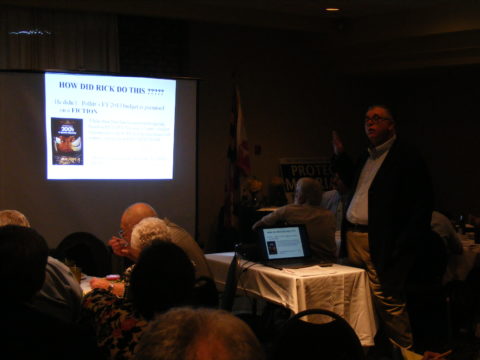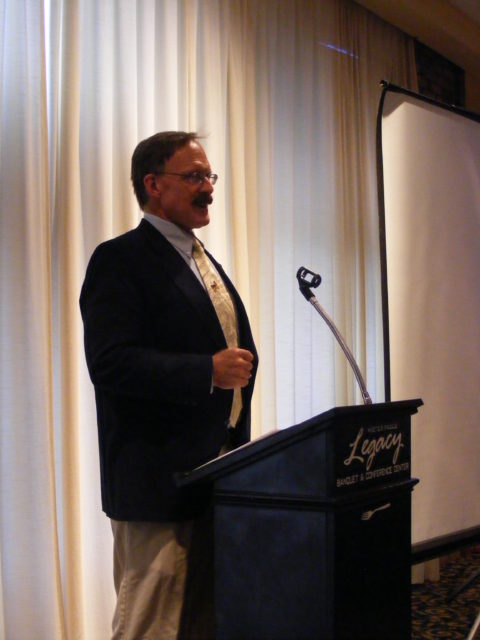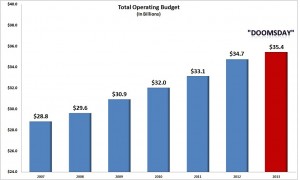Half a hundred now of these items which deserve a paragraph or three, and in this rendition several are of national interest.
I wanted to start out with a rather comprehensive look by Accuracy in Media at voter fraud. In truth, this is less of an expose than a confirmation because we on the Right had been thinking about this for years, and some of these accounts have filtered down to a local level.
Now I’ve heard people claim that voting should be a privilege reserved to property owners or to those who pay taxes rather than receive goodies from the government. I don’t agree with that approach, but I think that perhaps if local election boards are running into a problem with last-minute registrations scant weeks before an election, the simple solution would be to simply move back the deadline. Honestly, if people wish to register to vote they’re going to do it well in advance of the election. This would also do away with the open invitation to fraud known as same-day registration.
But I also agree we should do away with motor voter laws and eliminate early voting. If people are serious enough to vote they already have the right to get an absentee ballot. To me it’s a waste of taxpayer money to spend thousands on multi-day elections when just 2% of voters participate.
And don’t even go there and tell me I want to suppress turnout, because I don’t. I want prospective voters to take their responsibility more seriously. The left always screams “voter suppression” whenever some common-sense idea like photo voter ID or those others above are introduced, but they are all in favor of oppressive campaign finance laws. Isn’t that monetary suppression? Hypocrites.
The report is well worth a read.
Along that same line, writers Peter J. Boyer and Peter Schweizer ask why certain corporate interests can go scot-free under the Obama regime while others are hounded by the Justice Department. That’s not to say that Wall Street is a batch of crooks by any means, but in politics perception is reality and the fact that Wall Street gave far more to Barack Obama than John McCain leads to the thoughts of pay-for-play and cronyism.
Speaking of entities which give Democrats a lot of money, Matt Patterson and Trey Kovacs of the Competitive Enterprise Institute asked in the Washington Times why unions just won’t let go if a bargaining unit doesn’t want to stay with them. Well, the answer seems pretty simple to me – as they write:
There is a reason why unions are fighting to hold workers against their will and challenging laws that bring greater freedom to the workplace. Union leaders need a monopoly on labor in order to bankrupt governments and corporations, and they require unfree markets to maintain their own power and wealth.
That goes in the category of “duh,” workers be damned.
And this is a video worth sharing, even if I don’t necessarily agree with the point.
Personally I would prefer Medicare eventually be phased out or devolved to the states, but I realize that’s a decades-long process. Having said that, though, it’s obvious that Obamacare is the wrong direction to go despite the fact it cuts Medicare. Paul Ryan’s not pushing seniors off the cliff.
Finally, I wanted to bring up the attention being paid to a national issue by our own Congressman, Andy Harris. In a recent release, he decried the abuse of taxpayer dollars by those here illegally:
Illegal aliens are filing false tax returns claiming numerous fake child tax credits. Once our tax dollars are in the hands of illegal aliens, it’s impossible to get the money back. Once I learned about this outrageous loophole that allows billions of dollars per year to be stolen from US taxpayers, I knew I had to act.
In November of 2011, I joined Rep Sam Johnson in introducing H.R. 1956, Refundable Child Tax Credit Eligibility Verification Reform Act, to close this loophole. The bill is necessary because the IRS claims that they are simply following the law. We had hoped that the IRS would act without legislation.
One would think that the White House would instruct the IRS to stop giving away tax dollars to illegal aliens scamming our tax system. This is an urgent and immediate problem, especially as we’ve passed the tax filing deadline of April 15th.
The child care tax credits have grown from $924 million in 2005 to $4.2 billion last year. H.R. 1956 will curb the fraud in this program by requiring the IRS to only allow this tax credit for children with a social security number. H.R. 1956 was assigned to the House Ways and Means Committee and I am waiting for the hearing to be scheduled any time. (Emphasis in original.)
So my question is why there’s been no hurry to move this bill? I guess one would have to ask Rep. Dave Camp (R-MI) because it’s his committee. Perhaps his contributors would like the waiver to stand?
In truth, though, I think this is another in the series of ill-advised cautions by the Republican establishment to not risk alienating the Latino vote. Never mind that they turn off millions of voters who are concerned about the illegal alien problem – I’ll grant it’s less of a concern now that migration by illegals is now a net outflow due to a poor economy, but once conditions improve we may become a magnet once again.
Well, that cleans out my mailbox for the most part. Glad you stopped by for some original monoblogue content – I can’t put all my good stuff on Examiner because in all honesty I’m not sure their format would lend itself to such a post. That’s why I maintain this independent, conservative site!
But by all means you should subscribe to my Examiner page to get notice of when I do post there. I’m having fun juggling all these writing plates! Haven’t broken one yet.
And a happy Mother’s Day to all the moms out there. I wrote this yesterday so I could devote a little time to the moms in my life today, so enjoy.








